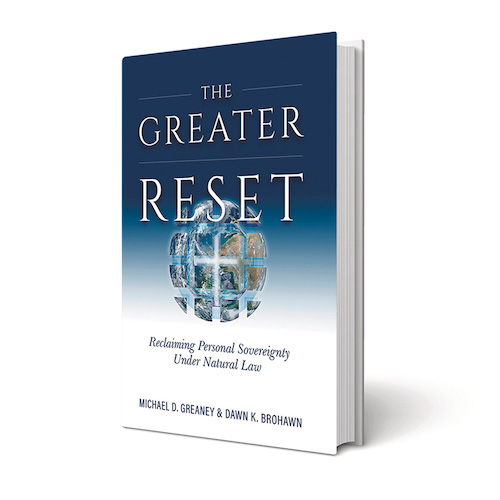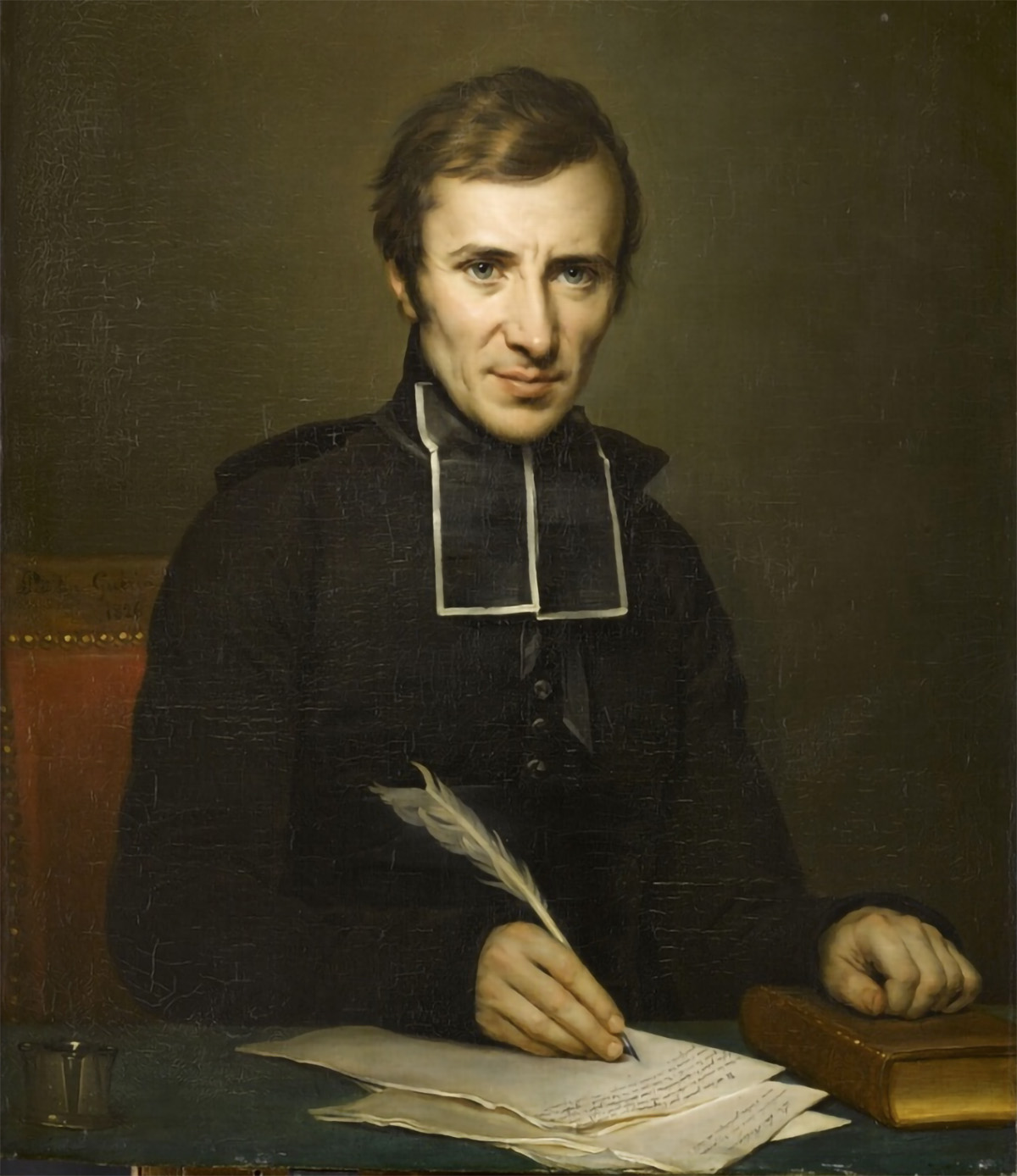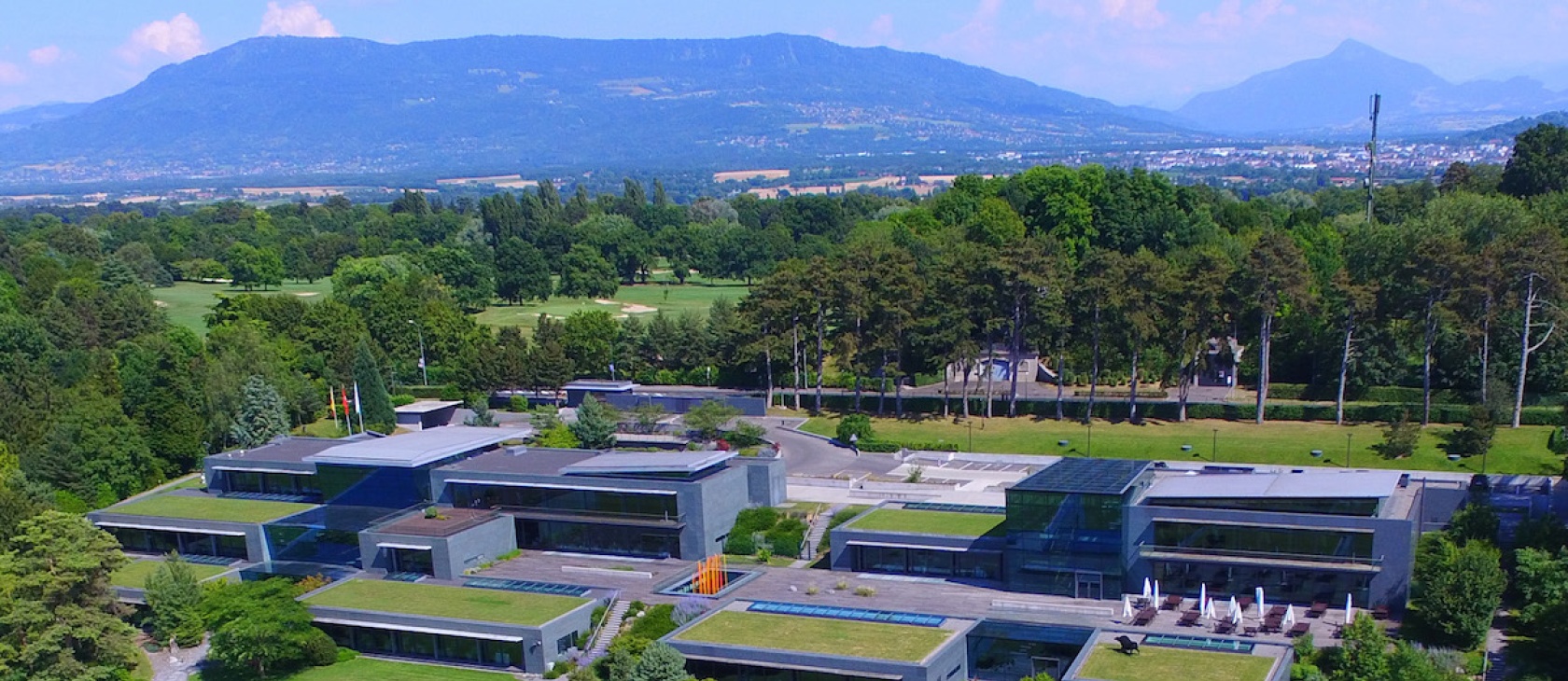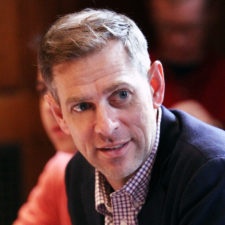This cleverly titled book begins with a discussion of the so-called Great Reset associated with Klaus Schwab and the World Economic Forum held in Davos, Switzerland, at which the global elite of business, government, finance, and nongovernmental organizations speculate on major challenges to the global order and their solutions. Somewhat boringly, the best and brightest parrot the usual bromides about equity, justice, the rich paying “their fair share,” sustainability, and climate change with such frequency that one might be forgiven for rolling one’s eyes and ignoring their pretensions. However, Michael D. Greaney and Dawn K. Brohawn of the Center for Economic and Social Justice here suggest that the Great Reset is nothing other than the newest iteration of totalitarian socialism. Couched behind the buzzwords of stakeholder capitalism, environmentalism, and social development is a “rehash of the same old corrupting, power-concentrating systems of both collective socialism and individualistic capitalism” that led us into the social and economic crises in which we find ourselves.
When natural justice and supernatural charity are confused, the state is virtually defied and social justice is reduced to a mere catchphrase. The Greater Reset tries to school our political and finance elites on the perils of a perennial heresy.

By Michael D. Greaney and Dawn K. Brohawn
(TAN Books, 2022)
The “Greater Reset” proposed by Greaney and Brohawn denies that poverty and inequity are inevitable, and thus hope for better, but conclude they will be worsened by the dreams of Davos, all of which will undermine private property, human dignity, and freedom. Instead, a framework of natural law and Thomistic personalism, such as proposed by figures such as Leo XIII, John Paul II, Louis Kelso, and Mortimer Adler, would allow a genuine “reset” in keeping with the dignity of the person, what the authors call their “Personalist Proposal.”
A perusal of the dust jacket and introduction might cause the reader to conclude that the book will be an investigation and exposé of the World Economic Forum; it is not, however. The topic reappears throughout, generally in an abrupt and brief paragraph shoehorned awkwardly into another topic, almost as if the authors were reminding themselves to mention the Great Reset, before returning to their main interest: how principles of natural justice were replaced with a supernatural vision of charity infused into politics. In the end, the book provides an interesting, if underdeveloped, history of the emergence and misinterpretation of Catholic social teaching, but placing this in the context of the Great Reset is mostly a distraction.
The first chapters are a disservice to the book, unfortunately. Reading like notes accompanying a PowerPoint presentation, they are unorganized, poorly written, and full of assertions and unexplained claims. Headings and subheadings proliferate, with some topics raised and then abandoned in a paragraph or two before turning to another, not obviously related discussion. Schwab’s proposals are given a perfunctory summary and rejected for violating the natural law or the dignity of the person, with somewhat random bullet points standing in place of more serious argumentation. While purporting to explain how the human attempts to supplant God and create the kingdom of God on earth, the first third of the book instead provides a largely unorganized and nonsystematic barrage of claims and objections about Keynesian economics, theology, Polish personalism, labor and technology, wealth disparity, natural law, the purpose of money, inflation, the Panama Papers, Dorothy Day, G.K. Chesterton, justice, and human dignity. That is, the first 97 pages of the book are chaotic. This reader, for instance, was very close to setting down the book for good.

It’s a shame that the opening chapters do such disservice to the book, and likely will be the occasion of many readers not arriving at chapter 3, where the book actually begins and becomes interesting. Alas, occasionally the spirit of the opening pages appears in the later chapters, but the central chapters of the book reveal Greaney and Brohawn in stride. Here they suggest a hermeneutical key to centuries of debate—namely, that in an excess of charity, the natural and supernatural orders became inverted, and the natural law principles of justice are overlooked in favor of the supernatural laws of faith and charity. This error, which could generically be termed “modernism” but that is more precisely described as “ultrasupernaturalism,” absorbs nature into the supernatural, thus distorting both. It is, in the words of Ronald Knox, quoted by the authors, “an excess of charity [that] threatens unity.”
Rather than nature and natural law maintaining their integrity, an integrity true and applicable to all people given their shared nature, ultrasupernaturalism does not follow the Thomistic view that grace presupposes and perfects nature but has faith and charity supplant reason and justice. When faith supplants reason in the natural order, opinion, especially the opinion of the elite, the vanguard, the enlightened, is authoritative, and doctrines and principles are held or rejected not for their truth or falsity but for their usefulness or inconvenience to the project, to what the elite are attempting to construct and create. Similarly, charity jettisons the norms of justice, which to charity’s eyes seem too moderate, too inclined to allow freedom and imperfection, and demands perfection, insisting that any politics other than the kingdom of heaven on earth, immediately, is inadequate. Enthusiasm and irrational utopian dreams cannot but follow. Further, voluntarism is embedded in all this. Reason is not only replaced by passion, but this results in a “self-directed faith based on personal opinion”—in short, modernism.
Greaney and Brohawn do not leave such claims in the abstract, and the strength of the book is as a history text. They rightly note the weakness of the church’s response to the French Revolution as well as to the Industrial Revolution, that is, the church’s inability to articulate a compelling vision to changed social, political, and economic realities. Pope Pius VII had started some needed reforms in the Papal States, which stalled out through the pontificates of Leo XII and Pius VIII. Consequently, Gregory XVI encountered social and political confusion, as well as the philosophical and theological innovations of the “new religion,” or the “Democratic Religion” as promoted by men such as Saint-Simon, Auguste Comte, and Charles Fourier. Nor was all well within the church, and Gregory considered the greatest threat to come from L’Abbé de Lamennais, the founder, according to Greaney and Brohawn, of social Catholicism. For Lamennais, it was not grace that perfected the individual but rather collective humanity was to be saved by establishing the kingdom of God on earth. Against Lamennais and his allies, Gregory wrote in 1832 what the authors call the first social encyclical, Mirari Vos, “On Liberalism and Religious Indifferentism,” largely targeting collectivism of various sorts.
When faith supplants reason in the natural order, opinion, especially the opinion of the elite, the vanguard, the enlightened, is authoritative, and doctrines and principles are held or rejected not for their truth or falsity but for their usefulness or inconvenience to the project.
Gregory XVI countered the new religion with Thomism as well, so that sound philosophy and normal principles of natural justice would have their rightful place. An aspect of that revival was the work of Luigi Taparelli, the Jesuit who first appropriated the term “social justice” for Catholic thought, although he meant a natural law principle known to reason as a guide to the reforming of human institutions. Eventually, this concern for reason was emphasized at the First Vatican Council, best understood, according to Greaney and Brohawn, as insisting on the primacy of intellect in natural matters.
While the context and protagonists change, Greaney and Brohawn identify a similar battle against ultrasupernaturalism in the British and American contexts. In Britain, Chesterton, Belloc, and the Distributists struggled against George Bernard Shaw, while in the United States Fulton Sheen and others contended with Henry George, Edward McGlynn, and John Augustine Ryan. Despite their attempts, and those of Heinrich Pesch in Germany, Leo XIII’s Rerum Novarum became interpreted against its true meaning, especially in the United States, and it became a matter of course to interpret Catholic social teaching in a quasi-socialist manner. The authentic teaching of the popes, of the tradition, and of natural law itself was subverted, with grave results for doctrine, discipline, and political alignment. Consumption of goods is not sufficient for an economy, and an equal distribution of consumables overlooks the basic fact that goods must first be produced to be consumed, and ownership and productivity is needed for self-determination and equity.
The final chapters break apart somewhat in their organization and structure, albeit not as badly as the book’s opening third. Three major aspects stand out. First is the development within the church’s understanding of the relationship between general and particular justice and general and particular virtue. It was long understood that legal justice was a general virtue, something like a disposition to the good of law and society in general, and with all that follows. Social justice, suggested the dissenters, was a particular virtue directed to individuals and their good, thus always demanding the bettering of their material conditions. Not so, concluded Pius XI, for social justice was directed to the common good, not directly the good of individuals, and brings about civil society and the network of institutions in and through which individuals realize their particular good. That is, social justice could be saved from crass materialism, utilitarianism, and the paternalism it so often falls prey to, and instead allow for individual freedom and the necessity of individual virtue, as is required for human dignity.

Second, the authors rightly articulate the importance of Thomistic personalism, especially in the thought of Karol Wojtyla/John Paul II, which insists on the personal dignity and self-governance of the individual while allowing for a proper sense of community and solidarity. Personalism is less an academic philosophy in competition with other philosophies and more a stance or insistence that any and all philosophies, as well as any social forms and politics, are judged against the personalist principle of the irreducible dignity and value of the human being, who is unlike any other aspect of creation in not being a thing, an object, or even merely an essence. Thus, there is a sharp binary in economics and politics, namely, that persons must be self-governed and free, never merely a project, and never adequately understood by the utilitarian calculus.
Third, despite their admiration for the popes and scholars advocating for the natural law position, Greaney and Brohawn acknowledge that a weakness or omission in the social encyclicals made them appear weaker and less applicable than they might have been. Too often the encyclicals properly promoted ownership and self-determination but overlooked the capacity of credit in creating ownership. If ownership depends upon past savings, then only those already with savings will join the ownership class. But if ownership can be based on future savings, that is, the potential earnings of an enterprise, then credit in fact allows ownership and drastically increases the numbers of those who can become owners, with all the goods that follow from ownership of capital. Too often the natural law theorists overlooked this fact, and thus could not deliver the details of how to move people from dependence or wages only into the freedom that accompanies owning productive property.
In the end, the book is an interesting mess that is nothing quite like it is advertised, not really about the Great Reset. In fact, the parts most like the advertising are extremely weak, best skipped over, and the economic proposals, too, are somewhat random and asserted without anything like sufficient discussion or evidence. The central sections, however, provide a rich historical account of a theological error with grave implications and the struggle of many to correct that error, although that error—irrationally replacing justice with the supernatural demands of charity—remains alive and well in the Great Reset and fevered dreams of its proponents. Some heresies refuse to die.








